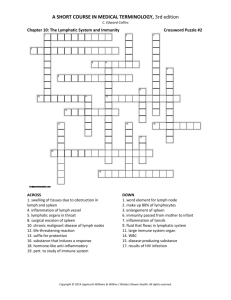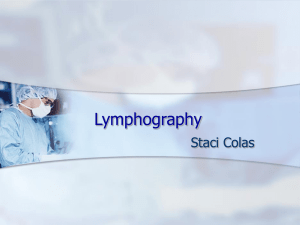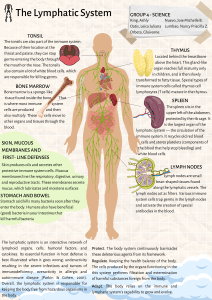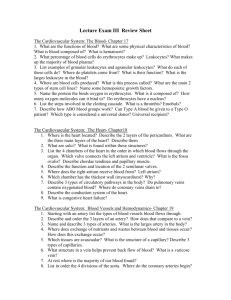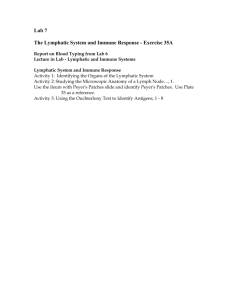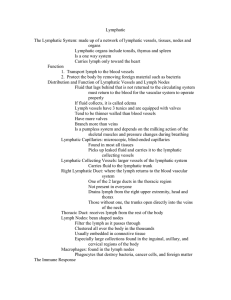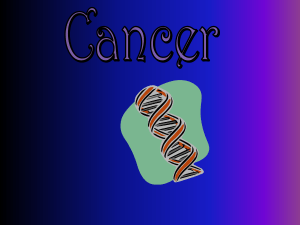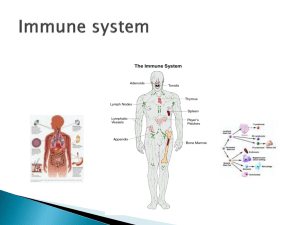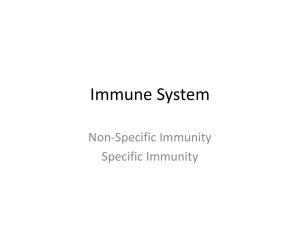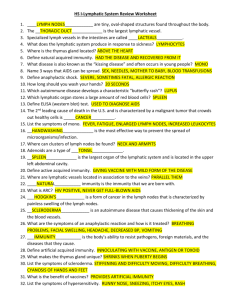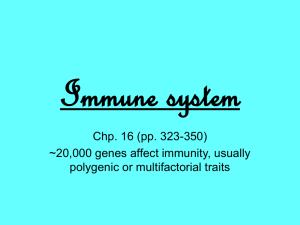Lymphatic & Immune System
advertisement
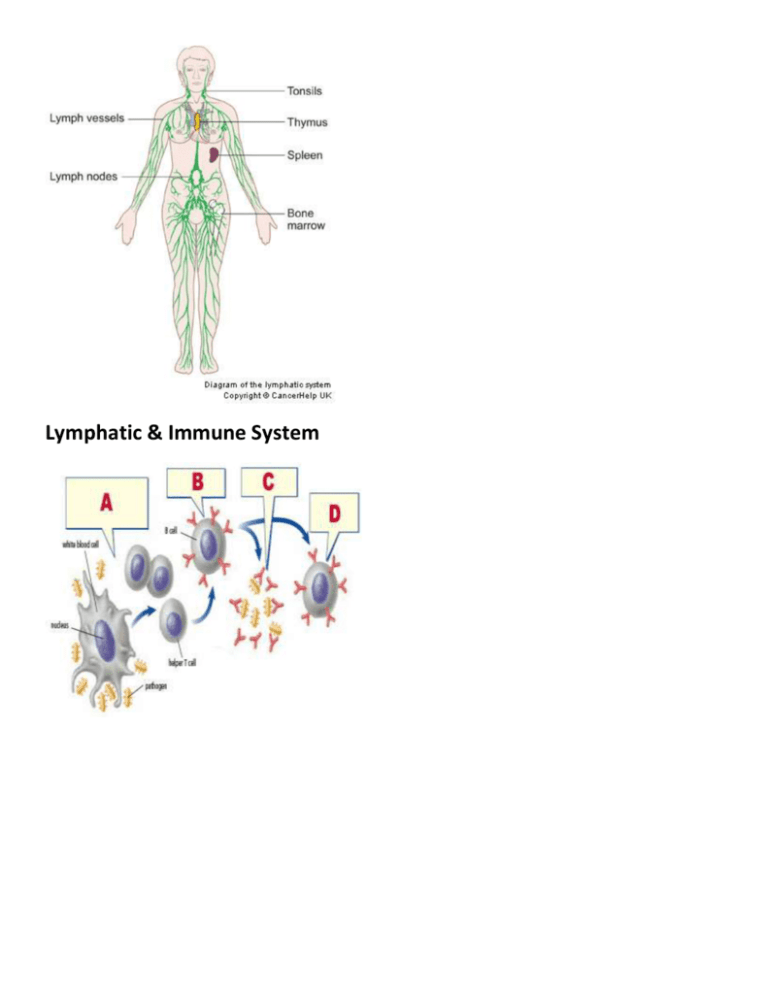
Lymphatic & Immune System System Interactions Lymphatic Function: (works with immune system) Helps protect body from disease Collects fluid lost from blood vessels and returns fluid to circulatory system Parts: WBC, thymus, spleen, lymph nodes, lymph vessels Fluid is known as lymph Thymus produces T cells that recognize invaders Spleen – helps cleanse blood and remove damaged blood vessels Lymph nodes act as filters, trapping bacteria and other organisms that cause disease How does system maintain homeostasis? Immune Function: (works with lymphatic system) To fight infection through the production of cells that inactivate foreign substances Parts: White blood cells, thymus, spleen, lymph nodes, lymph vessels Pathogens are disease-causing agents, which include bacteria, viruses, fungi and environmental factors Nonspecific defenses First line of defense: skin, mucus, sweat, tears Second line of defense: inflammatory response which is caused by tissue damage caused by injury or infection Specific defenses or immune response is caused by an antigen or disease-causing agent Antibodies are proteins that recognize and bind to antigens and are released by plasma cells Vaccination – weakened or mild form of a pathogen to produce immunity Allergic reaction - overreaction of immune system to an antigen Histamine – increase blood flow and fluids to surrounding area
